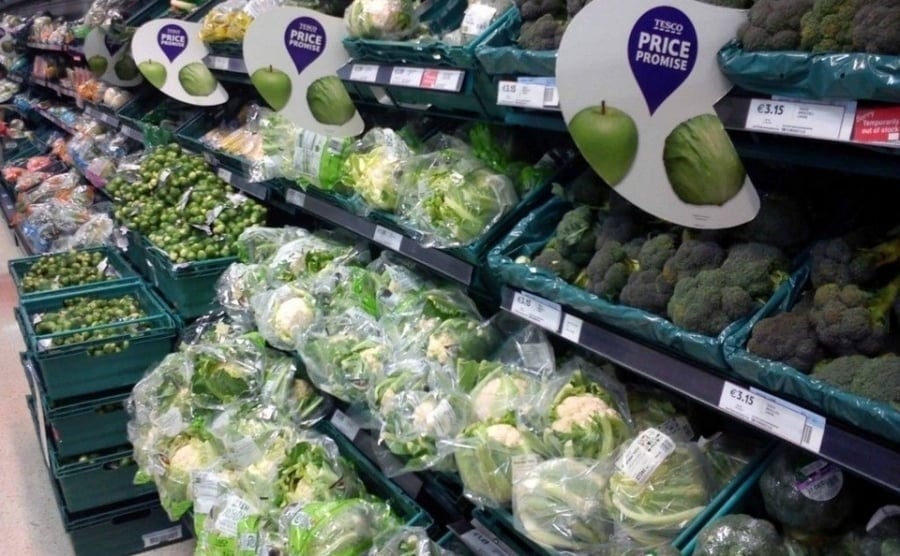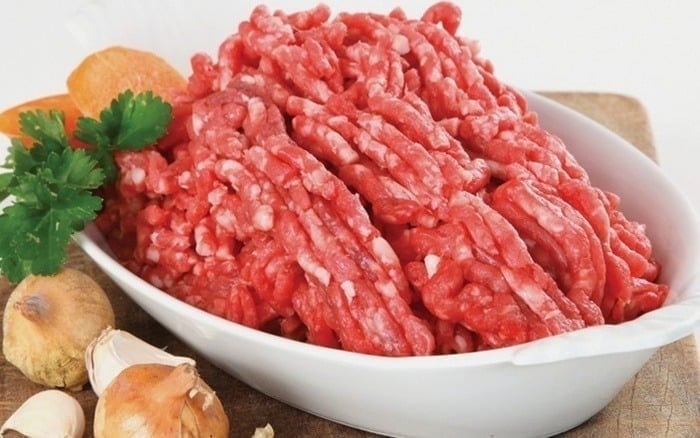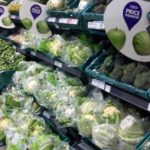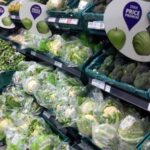Supermarkets often lure customers with discounted items, creating a sense of excitement for bargain hunters. However, not all deals are worth grabbing. It’s essential to stay vigilant and thoughtful to avoid falling for promotions that aren’t genuinely beneficial, as shared by supermarket employees.
Pre-peeled and sliced fruits in the supermarket – Convenient but use caution
You’ll often come across trays of fruits that have been carefully peeled, sliced, and packaged. These products are colorful and convenient for those who want to eat on the go without much preparation. However, the quality of pre-cut fruits isn’t always guaranteed. These slices might be made from bruised or slightly damaged fruits. The damaged parts are removed, leaving only the seemingly fresh pieces. While they look appealing, the taste and freshness are often compromised due to processing and storage.

Discounted milk – Not always a wise choice
Promotions like “buy one, get one free” on milk can be enticing. But be cautious, as discounted dairy products are often closer to their expiration dates. If you consume milk quickly, buying a reasonable amount on sale is sensible. However, avoid over-purchasing to prevent waste due to spoilage.
Off-season produce – Proceed with caution when prices are high
Fruits and vegetables produced out of season tend to be much more expensive than in their peak season. When buying, carefully consider the quality and value. In-season produce is usually fresher and more affordable, so choosing to buy during the right months ensures tasty meals and saves your wallet.
Discounted frozen seafood – Be wary of quality
Seafood is a favorite for many, and we’re often tempted by discounted items. However, frozen seafood on sale might have been stored for a long time, affecting its quality and freshness. The meat may lose its firmness, and nutrients may be compromised. Always check production and expiration dates to ensure your health safety.
Ground meat – Convenient but requires careful selection
Ground meat saves preparation time and is excellent for quick meals. But it’s hard to know which meats are used and their actual freshness. Sometimes, it might include less fresh cuts, excess fat, or leftover trimmings from the day. So, check the origins and production dates to choose safer, higher-quality products for your family.

Sauce and dressings – Convenient but check the ingredients
Bottled sauces and dressings are convenient, but they often contain preservatives and unhealthy components. To protect your health and save money, consider making your sauces at home with natural ingredients, free from artificial additives. This ensures safer and tastier meals.
Shopping at traditional markets – A cost-effective solution
Produce at supermarkets is often pricier than at traditional markets. When possible, opt for fresh produce from local farmers’ markets to save money without compromising quality. Buying locally also supports the development of your region’s agriculture.





































